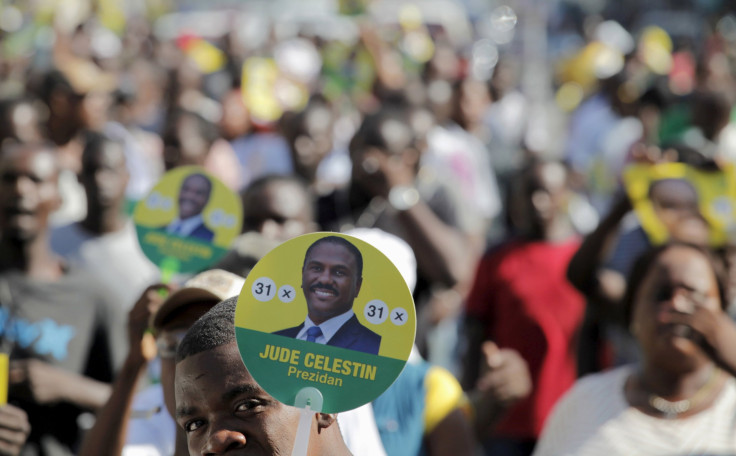Haitians Continue To Protest Preliminary Election Results As Critics Raise Concern Over 'Massive Fraud' Allegations

Thousands of Haitians are continuing to protest following last week's release of preliminary results from the country’s highly contentious Oct. 25 first round of elections, which was marred by years of delay and fears of violence. The results showed that government-backed presidential candidate Jovenel Moise, who won the most votes, was likely to go up against opposition candidate Jude Célestin in the runoff.
Election council member Jacceus Joseph, who represents human rights groups, has refused for the second time to sign off on the preliminary results. He has cited concerns over a lack of transparency and allegations of fraud.
While the PHTK party, which currently leads the country, has more lawmakers than any other, it is outnumbered by the combined opposition in both chambers of Congress. If opposition politicians were to form a coalition, PHTK would be a minority in either the Senate or the Chamber of Deputies, according to the Miami Herald.
Local observers said the elections were stained by “massive fraud,” and Célestin, who won 25 percent of the reported vote, called the results a “farce." He called on demonstrators to carry on their protests, even in the face of a government crackdown, as police reportedly carried out numerous arrests and at least one person was killed.
“The Haitian people will not stand for this dictatorship project that is going on,” Célestin said at a news conference Friday. "They have put in place a repressive force to crush the people, to kill the people, but they won't be able to kill all the people."
The United Nations and the “Core Group” of countries, which includes ambassadors from Brazil, Canada, France, Spain, the U.S. and the European Union, have “deplored” incidents of violence over the last few days, Al Jazeera reported, as the Organization of American States announced it was sending an observer mission.
Haiti remains the Western Hemisphere’s poorest country, and its history has been stained by chronic political violence and high-level corruption. The votes included the first round of the presidential election, a second round of legislative elections for 119 seats and municipal elections.
More than 54 presidential candidates and 1,800 legislative candidates entered the Oct. 25 race. Moise, from the same party as incumbent President Michel Martelly, has been the front-runner in the race, and has vowed to improve education, increase tourism and exports and improve security and the rule of law. Célestin has made similar promises, and has also vowed to stamp out corruption and has said he will revamp government spending and create jobs.
© Copyright IBTimes 2024. All rights reserved.






















